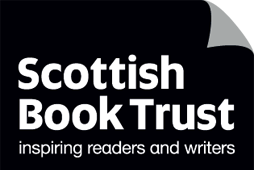What is digital storytelling?
Digital storytelling is a simple, honest and powerful way for people to share stories. A digital story is an audio recording of a personal story, accompanied by pictures, created using digital tools. The unique appeal of digital storytelling is that it puts people in complete control of how their story is told: all stories are scripted and edited solely by their creators. It's a person's story told the way they want to tell it.
“I felt like it was a healing process. Telling my story… it was therapeutic.” - Participant
What happens in a digital storytelling workshop?
Our ethos and workshop format
We aim to create a safe, supportive and inspiring environment to help you share your story ideas. You’ll work with a group of maximum six other people, and we always encourage group members to give supportive feedback where it is wanted.
What do people learn in the workshop?
In a typical workshop, we’ll help you:
Come up with ideas for your story.
Write a short story script (or set out your story in another way if you prefer not to write).
Create a high quality recording of your script (we’ve also helped to organise voice actors where a story is required to be anonymous).
Choose powerful images to accompany your story.
Learn the basics of video editing to put it together.
Don’t worry if you’re a beginner in making a video – we’ll provide all the support you need, and we can do the editing for you if you prefer.
What is the aim of a workshop?
It really depends on the aims of the people taking part!
It is your choice whether or not you share the story you create in one of our workshops. Some people have chosen to publish their stories on this website; others have shared their story ‘offline’ at small public events or peer support groups; others have shared only with friends and family, and some haven’t shared with anyone at all.
A digital storytelling workshop can have lots of different impacts:
A chance for personal reflection and healing
“So, the thing that it helped me most with is finally I could process what happened to me and understand that, and then come to some peace with it to some extent: okay, that’s what happened to me.”
A space to meet others in an empathetic, non-judgemental space
“I felt like a human being again because somebody had cared about what had happened to me. When I told the story they were caring and sensitive and respectful of it. So, for somebody to honour you just by listening to what happened, it’s a healing thing.”
A chance to raise awareness
“We've been given our own voices, it definitely helps people from minority groups like people with autism, because usually it's often other people…usually with autism someone else is speaking on our behalf, 'my son/daughter' whatever, when it would be more beneficial if it was us, as ourselves speaking on our behalf. And that's what's happening in this group.”
“I wrote my story, it was about having cancer and what I went through. And then I realised that by doing digital storytelling, it helped me to explain myself. Without having to go through all the crap you normally go through. I would definitely recommend this to anybody.”
A chance to learn new skills
“I’ve learned such a lot, I was very nervous of new technology although I use a computer but with both our tutors I have gained in confidence and feel like it’s opened up a new experience that I would never have thought I would be involved in.”
Who are our workshops suitable for and how can I get involved?
Most of the projects we have delivered so far have been funded through trusts/foundations or by the partner on that project.
Our workshops can be delivered online or face to face.
We are currently designing a training workshop for professionals who want to create their own story and learn how to support others to do so - why not sign up to our mailing list to be notified when this is available?
We also run workshops for members of the public when funding permits - see our current opportunities page to find out if anything is currently being offered.
What equipment is needed?
If we are delivering workshops face to face, we can supply all equipment needed to take part.
If you are taking part in one of our online workshops, we recommend having a laptop, PC or Mac to take part, as we can provide the maximum available support on those devices.
However, it is possible to take part on a tablet or even a mobile phone and many people have done so - we would be happy to have a chat and let you know what participation can look like for people with different technology available.
How long does the workshop last?
Our workshops look different depending on the needs of each group, but usually a ‘workshop’ means 6 sessions. Each session lasts for 2 hours, and there is usually 1 session per week.
Sometimes a workshop looks different - for instance, sometimes our projects have been 3 sessions lasting 4 hours each.
